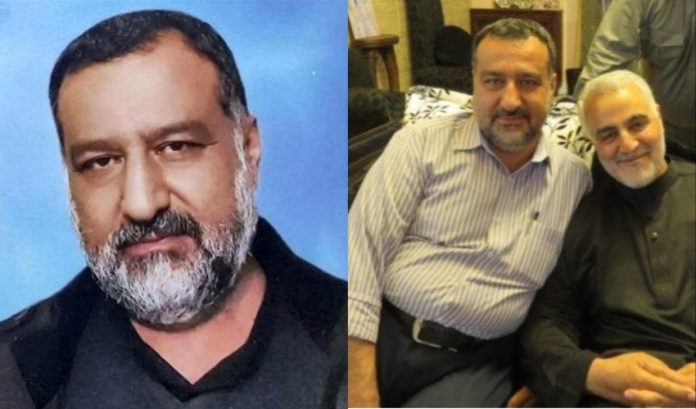The Iranian Revolutionary Guard threatened Israel following the targeted killing of a key commander, Sayyed Razi Mousavi, in an Israeli airstrike on the outskirts of Damascus, Syria.
The IRGC said in a statement reported by Tasnim News Agency that a prominent leader “fell victim to an Israeli bombing in the Zainabiyah area near Damascus.
The statement declared that the”usurping and brutal Zionist entity will pay the price for this crime.”
The statement highlighted the significance of Sayyed Mousavi within the Revolutionary Guard, noting his role as one of the companions of the Iranian top commander Qassem Soleimani.
Notably, Iran maintains a substantial military presence in Syria, contributing to ongoing geopolitical tensions between Tehran and Washington, given the presence of American forces in the same region.
According to areport, IRNA highlights Moussavi’s active role in providing logistical support to the “axis of resistance” in Syria.
In a significant escalation of tensions in the Middle East, Israel has reportedly targeted and killed Iran’s senior general Razi Moussavi in a missile strike in the Zeinabiyah district located in the suburbs of Damascus, Syria.
The strike, allegedly carried out by Israeli forces, has ignited a fresh wave of animosity between the two regional adversaries.
IRGC vows retribution for killing
Iran’s Revolutionary Guards Corps (IRGC) swiftly confirmed Moussavi’s death, attributing it to a “missile attack” and vowing that Israel would “pay for this crime.”
Moussavi, described as one of the most experienced advisors of the Quds Force, the foreign arm of the IRGC, was reportedly engaged in providing logistical support to groups aligned with Tehran, operating in Syria against Israeli interests.
Moussavi’s role and ties to Soleimani
The official Iranian news agency IRNA highlighted Moussavi’s active role in providing logistical support to the “axis of resistance” in Syria.
He was also noted as a companion of General Qassem Soleimani, the revered Quds Force commander assassinated in a U.S. drone strike in Baghdad in 2020. The IRGC’s statement draws a parallel between the two events, hinting at a deepening narrative of historical grievances between Iran and Israel.
Iran’s state TV reported that Moussavi was targeted by “three missiles,” sharing footage of smoke rising from the strike area. The Syrian Observatory for Human Rights, based in the UK, corroborated the incident, indicating that Israeli strikes hit positions used by Iranian groups and Hezbollah in the Sayyida Zeinab area.
As of now, Israel has not officially commented on the reported strike, maintaining its policy of neither confirming nor denying such operations in Syria. Israel has consistently expressed its determination to prevent Iran from expanding its influence in the region and has frequently targeted Iranian-backed forces and Hezbollah fighters in Syria.
Escalation amid ongoing regional conflicts
The reported strike comes amidst Israel’s intensified military campaign against Hezbollah and other Iranian-backed forces in Syria. The situation has been further complicated by the ongoing conflict between Israel and Hamas, triggered by the latter’s attacks on October 7, resulting in a series of retaliatory strikes by Israel in Gaza.
The international community closely watches the situation, given the potential for further escalation in an already volatile region. Concerns persist over the repercussions of these events on the broader dynamics of the Middle East, particularly in light of Iran’s historic support for groups opposed to Israel and its longstanding commitment to the Palestinian cause.













